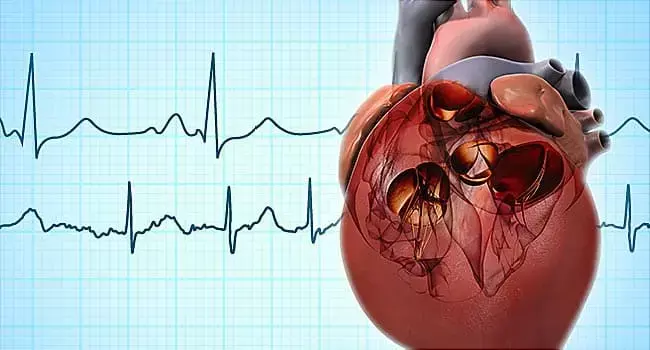- Home
- Medical news & Guidelines
- Anesthesiology
- Cardiology and CTVS
- Critical Care
- Dentistry
- Dermatology
- Diabetes and Endocrinology
- ENT
- Gastroenterology
- Medicine
- Nephrology
- Neurology
- Obstretics-Gynaecology
- Oncology
- Ophthalmology
- Orthopaedics
- Pediatrics-Neonatology
- Psychiatry
- Pulmonology
- Radiology
- Surgery
- Urology
- Laboratory Medicine
- Diet
- Nursing
- Paramedical
- Physiotherapy
- Health news
- Fact Check
- Bone Health Fact Check
- Brain Health Fact Check
- Cancer Related Fact Check
- Child Care Fact Check
- Dental and oral health fact check
- Diabetes and metabolic health fact check
- Diet and Nutrition Fact Check
- Eye and ENT Care Fact Check
- Fitness fact check
- Gut health fact check
- Heart health fact check
- Kidney health fact check
- Medical education fact check
- Men's health fact check
- Respiratory fact check
- Skin and hair care fact check
- Vaccine and Immunization fact check
- Women's health fact check
- AYUSH
- State News
- Andaman and Nicobar Islands
- Andhra Pradesh
- Arunachal Pradesh
- Assam
- Bihar
- Chandigarh
- Chattisgarh
- Dadra and Nagar Haveli
- Daman and Diu
- Delhi
- Goa
- Gujarat
- Haryana
- Himachal Pradesh
- Jammu & Kashmir
- Jharkhand
- Karnataka
- Kerala
- Ladakh
- Lakshadweep
- Madhya Pradesh
- Maharashtra
- Manipur
- Meghalaya
- Mizoram
- Nagaland
- Odisha
- Puducherry
- Punjab
- Rajasthan
- Sikkim
- Tamil Nadu
- Telangana
- Tripura
- Uttar Pradesh
- Uttrakhand
- West Bengal
- Medical Education
- Industry
IV diltiazem tops metoprolol for treating patients of atrial fibrillation with rapid ventricular rate: Study

China: Intravenous diltiazem and metoprolol are used commonly for treating atrial fibrillation (AF) with rapid ventricular rate (RVR) in the emergency department (ED). However, the advantages and disadvantages of these drugs cannot be verified. Now, a recent study in the American Journal of Emergency Medicine found that IV diltiazem versus metoprolol has higher efficacy, lower ventricular rate, shorter average onset time, less impact on blood pressure, and no increase in adverse events.
In the study, published in The American Journal of Emergency Medicine, Qingsu Lan, The First Clinical Medical College, Lanzhou University, Lanzhou, China, and colleagues aimed to assess the efficacy and safety of intravenous diltiazem versus metoprolol for AF with RVR.
For this purpose, the researchers systematically searched the online databases. Meta-analysis was performed using weighted mean difference (WMD), relative risk (RR) and 95% confidence interval (CI). Using Review Manager 5.4.1., the researcher performed statistical analysis.
The meta-analysis included seventeen studies involving 1214 patients in nine randomized controlled trials (RCTs) and eight cohort studies. 643 patients were included in the intravenous diltiazem group and 571 patients group in the intravenous metoprolol.
The results of the meta-analysis showed that compared with intravenous metoprolol, intravenous diltiazem was found to have higher efficacy (RR =1.11), shorter average onset time (RR = −1.13), less impact on systolic blood pressure (WMD = 3.76), lower ventricular rate (RR = −9.48), diastolic blood pressure (WMD = −1.20) and no significant difference in adverse events (RR = 0.80) was found between intravenous diltiazem and metoprolol.
"Intravenous diltiazem has higher efficacy, shorter average onset time, lower ventricular rate, less impact on blood pressure, and with no increase in adverse events compared to intravenous metoprolol," wrote the researchers.
Reference:
The study titled, "Intravenous diltiazem versus metoprolol for atrial fibrillation with rapid ventricular rate: A meta-analysis," is published in The American Journal of Emergency Medicine.
DOI: https://www.sciencedirect.com/science/article/abs/pii/S0735675721008883
Dr Kamal Kant Kohli-MBBS, DTCD- a chest specialist with more than 30 years of practice and a flair for writing clinical articles, Dr Kamal Kant Kohli joined Medical Dialogues as a Chief Editor of Medical News. Besides writing articles, as an editor, he proofreads and verifies all the medical content published on Medical Dialogues including those coming from journals, studies,medical conferences,guidelines etc. Email: drkohli@medicaldialogues.in. Contact no. 011-43720751


